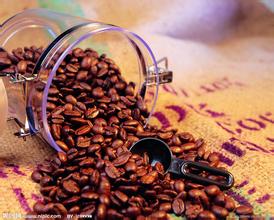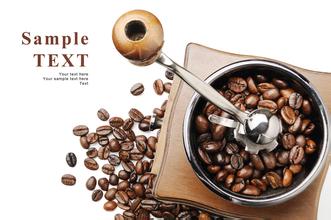Introduction to the varieties of grinding scale of El Salvador Pacamara coffee beans by flavor description treatment
Introduction to the varieties of grinding scale of El Salvador Pacamara coffee beans by flavor description treatment
The civil war caused chaos and affected economic development, but ironically allowed the ancient coffee to be preserved, and the situation was so chaotic that coffee producers in El Salvador failed to catch up with the renewal of coffee varieties in Central and South America.
El Salvador produces 100% Arabica coffee, of which 68% is Bourbon, Coffea arabica var. Bourbon), 29% Pacas, other varieties including Pacamara,Caturra, etc.
The Pacas variety, first discovered in El Salvador in 1949, is a natural hybrid between bourbon and Catura.
The variety Pacamara, which was artificially bred by pacas and maragogipe (or maragogype), was first bred in 1958 (1954). Pacamara species is a rare artificial breeding of excellent varieties, blue is better than blue, perfectly inheriting the advantages of the mother plant, both the excellent taste of pacas species, raw bean granules also inherited the large size of malagogipe. The Pacamara species is thought to be the result of the pursuit of large Arabica species.
On the whole, Salvadoran coffee inherits the mild quality of Sino-American coffee, which is soft, slightly sour and has beautiful sweetness. At the same time, it also has its own characteristics: the aromatic taste is slightly sour and very soft; it is pure and has no miscellaneous flavor, and the taste balance is excellent; the smooth feeling like cream chocolate is impressive; the dense feeling of coffee in the mouth makes the coffee have a deep taste, and the long finish should not underestimate the coffee production of El Salvador. In its heyday, it was once the fourth largest coffee producer in the world, but decades of civil war almost dragged down the coffee industry. fortunately, the war has stopped in recent years, and the coffee industry has come back to life. The only benefit that the civil war brought to the Salvadoran country was that the farmers' fields were barren and failed to catch up with the most popular Katimo exposure train in the past two decades, thus preserving the ancient varieties of bourbon and Tibica, that is to say, El Salvador still uses the most traditional shade planting, which is of positive significance to the aroma of coffee. In 2005, the Salvadoran mixed-race Pacamara boasted in coe, which confused many international cup testers and did not know how to score it. It was never expected that this hybrid bean not only broke the mellow boundary of coffee, but also expanded the visibility of Salvadoran coffee.

Important Notice :
前街咖啡 FrontStreet Coffee has moved to new addredd:
FrontStreet Coffee Address: 315,Donghua East Road,GuangZhou
Tel:020 38364473
- Prev

Description of the characteristics and Flavor of Coffee beans in Latin America introduction to the regional treatment of manor production
Description of the characteristics and flavor of Latin American coffee beans the treatment method of the manor region was once the second largest coffee producer only in Brazil, but Colombia, which has been overtaken by Vietnam and ranked third in the world, is the largest supplier of washed beans in the world. Colombia has become synonymous with good coffee after years of image-building. Despite the balanced flavor, thick texture and famous acid
- Next

Introduction to the characteristics, flavor and taste of coffee beans in Tanzania
The characteristics of Tanzanian coffee beans, taste, taste, manor production, regional treatment, Tanzanian coffee has also been developed in the hands of German and British colonists, and has long been loved by Europeans and squeezed into the ranks of famous products. The most favorable factors that make Tanzanian coffee famous are Hemingway and his novels. Since Hemingway embarked on his career as a writer in France
Related
- Detailed explanation of Jadeite planting Land in Panamanian Jadeite Manor introduction to the grading system of Jadeite competitive bidding, Red bid, Green bid and Rose Summer
- Story of Coffee planting in Brenka region of Costa Rica Stonehenge Manor anaerobic heavy honey treatment of flavor mouth
- What's on the barrel of Blue Mountain Coffee beans?
- Can American coffee also pull flowers? How to use hot American style to pull out a good-looking pattern?
- Can you make a cold extract with coffee beans? What is the right proportion for cold-extracted coffee formula?
- Indonesian PWN Gold Mandrine Coffee Origin Features Flavor How to Chong? Mandolin coffee is American.
- A brief introduction to the flavor characteristics of Brazilian yellow bourbon coffee beans
- What is the effect of different water quality on the flavor of cold-extracted coffee? What kind of water is best for brewing coffee?
- Why do you think of Rose Summer whenever you mention Panamanian coffee?
- Introduction to the characteristics of authentic blue mountain coffee bean producing areas? What is the CIB Coffee Authority in Jamaica?

